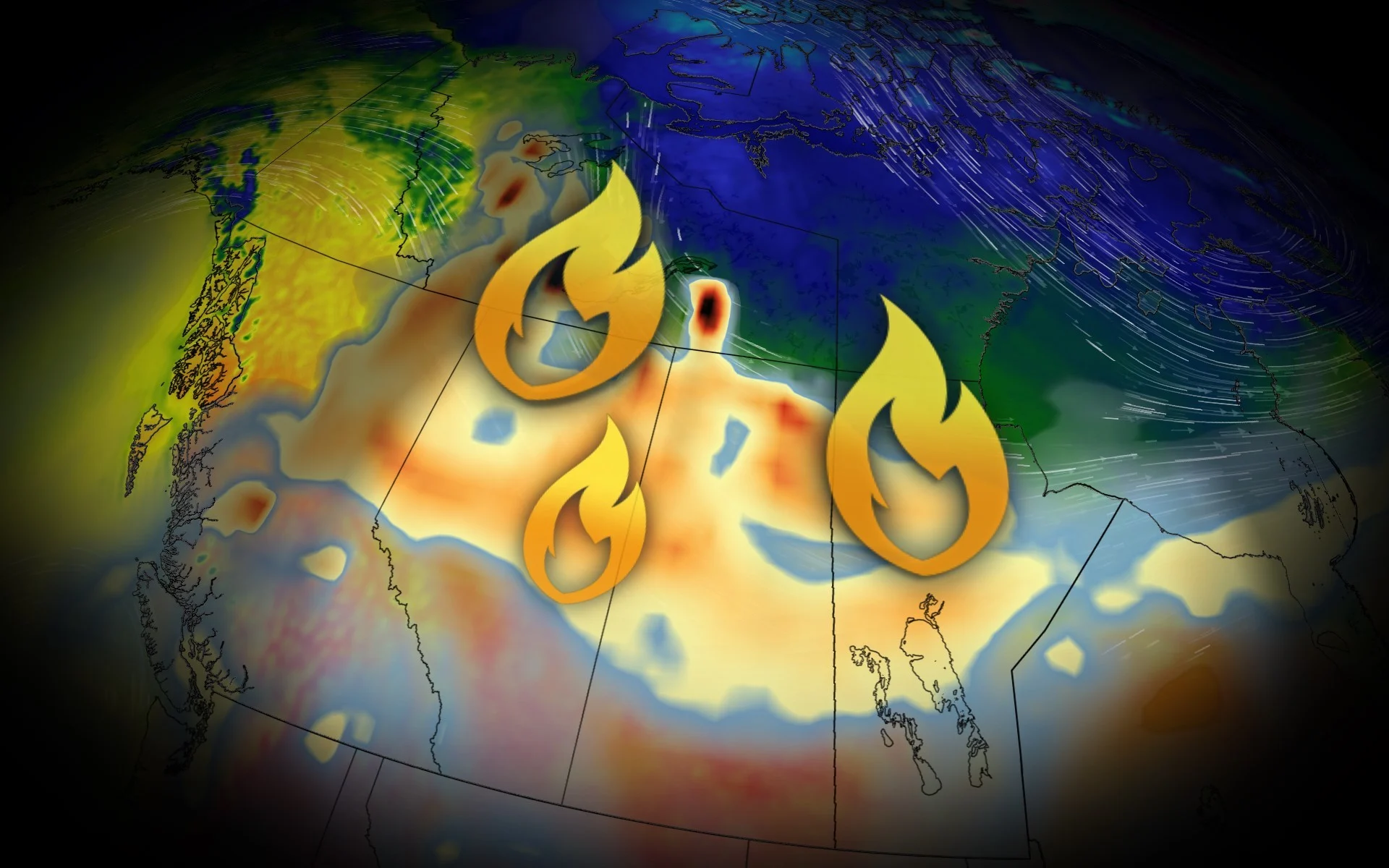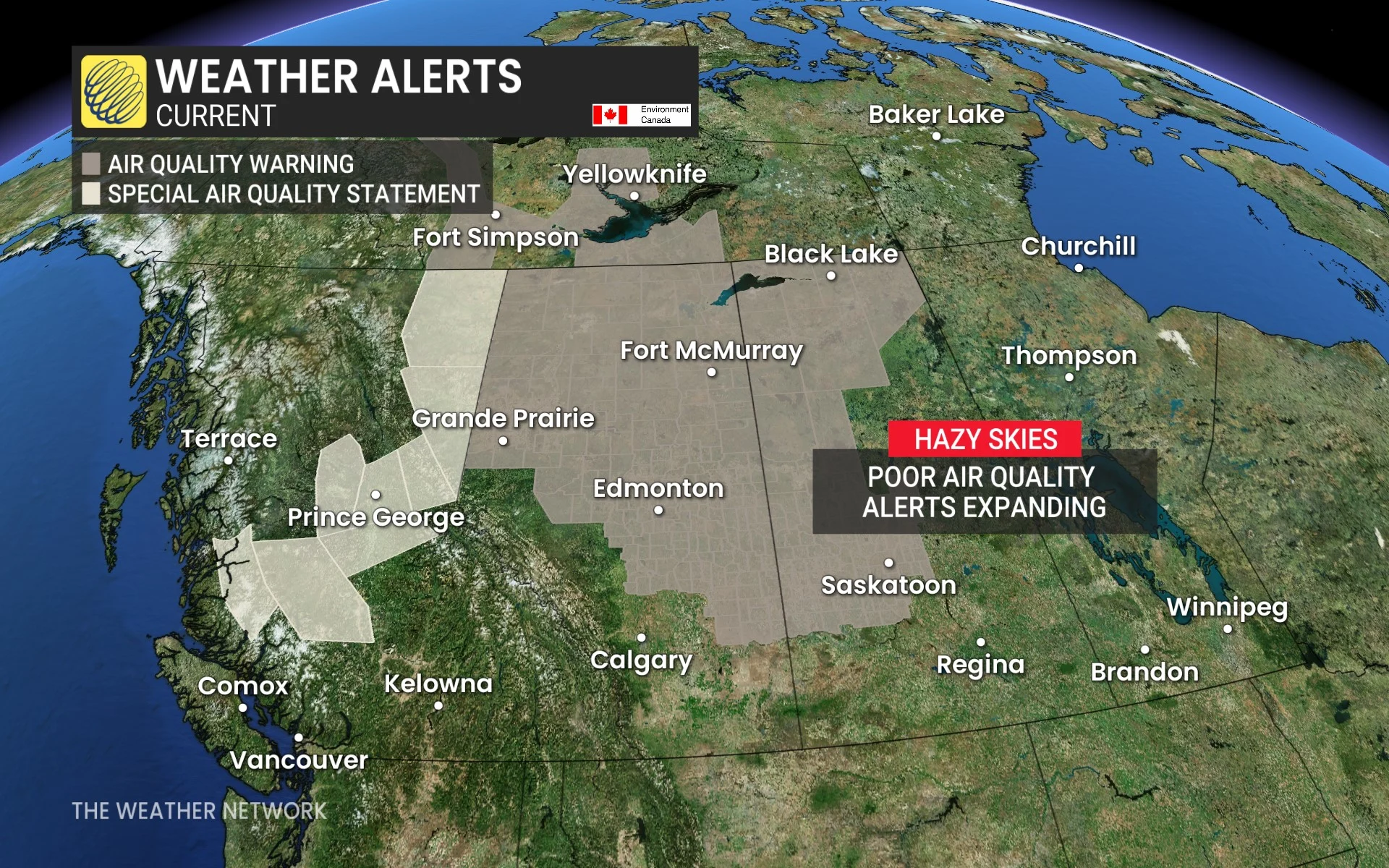
Historic heat wave fans fires and spreads smoke across Canada
Wildfires continue to escalate in Canada, especially in the Western provinces, spreading smoke and forcing evacuations in multiple locations in the country
An impressive, late-summer heat wave in B.C. will help stoke more wildfires and their accompanying smoke this week.
As we kick off a new month, Canadians can expect more wildfire smoke to spread across the country in the coming days as the wildfire season shows no sign of letting up, just yet.
DON'T MISS: The Weather Network's wildfire hub
2025 wildfire season by the numbers (as of Aug. 27)

Total fires (2025): 4,758
Area burned (2025): More than 7.8 million hectares
Comparison (2023): 18.4 million hectares burned, Canada’s all-time high record.
Provincial and territorial breakdown:
Saskatchewan: 2,863,430 hectares
Manitoba: 2,071,002 hectares
Northwestern and Yukon territories: 879,635 hectares
British Columbia: 732,919 hectares
Alberta: 670,479 hectares
Ontario: 590,876 hectares
Newfoundland and Labrador: 20,302 hectares
Nova Scotia: 8,122 hectares
Quebec: 5,109 hectares
New Brunswick: 2,508 hectares

Nearly two-thirds of this year’s burned area is concentrated in Saskatchewan and Manitoba, underscoring how Prairie provinces have bore the brunt of 2025’s devastation.
Heat wave and lightning spark new fires in the West
Western Canada remains in the grip of an extreme heat wave this week, with temperatures running 10 to +15°C above normal. Dry fuels and extreme heat have created explosive fire conditions.

On Sunday alone, 1,031 lightning strikes were recorded across B.C., sparking 34 new fires. Dozens of existing wildfires in the province remain out of control, further straining firefighting resources.
Smoke plume on the move
A developing upper-level trough across Ontario will transport smoke plumes from the Northwest Territories and northern Prairies southeastward this week. The changing winds will continue to drive smoke into the upper Midwest of the U.S., as well.

By Thursday and Friday, smoke will likely sweep into portions of Ontario, likely degrading air quality due to the abrupt change in wind direction.
The setup reaffirms how Canada’s wildfire crisis has cross-border impacts, affecting communities thousands of kilometres away from the flames.
The look ahead

With extreme fire danger locked in over the next seven days, conditions are set to worsen, not improve. The national burned total is already more than 7.8 million hectares, and will jump significantly once again.
With files from Tyler Hamilton, a meteorologist at The Weather Network.
